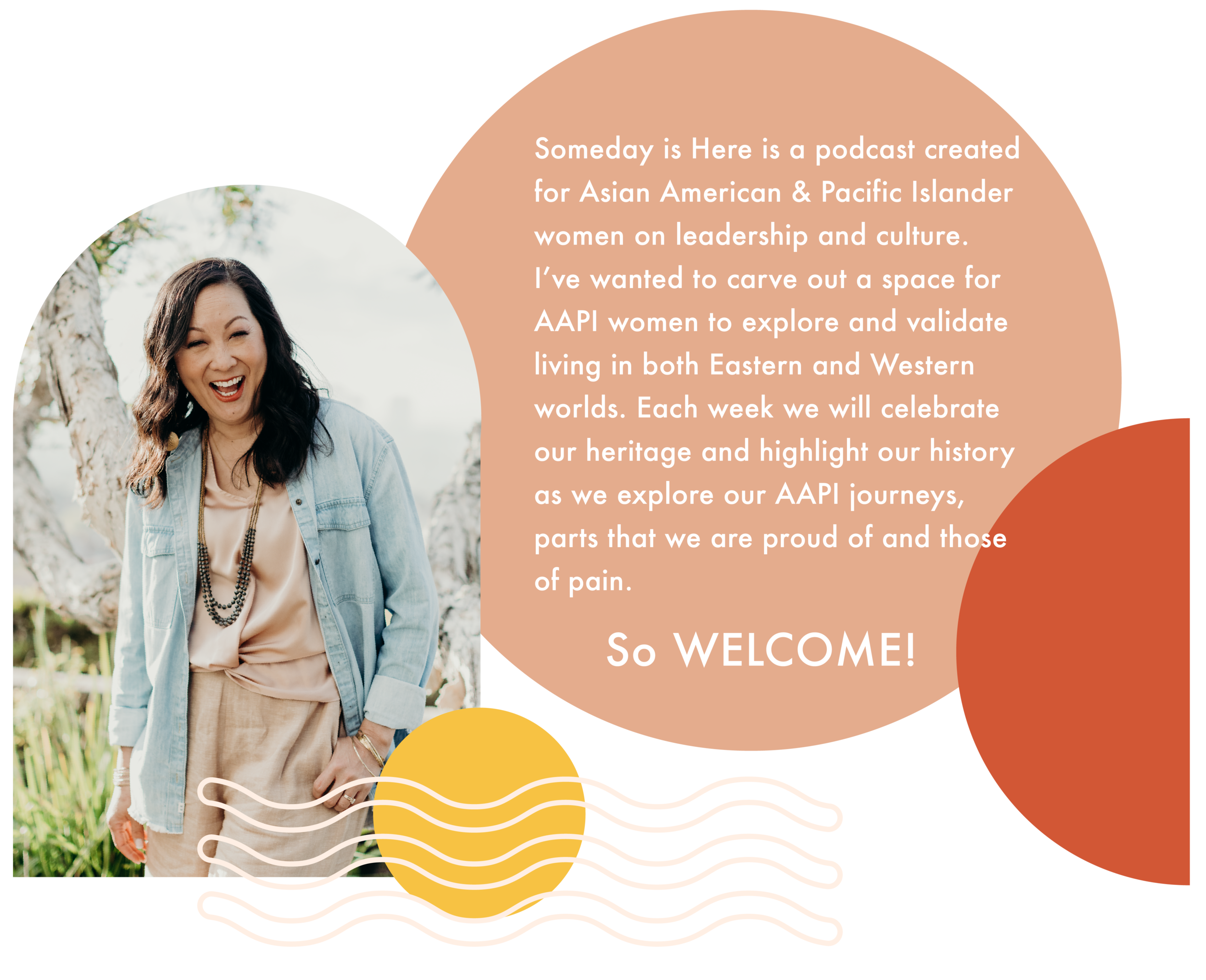Episode 24 - Jocelyn Chung
EPISODE 24 - Jocelyn Chung
Wow! Season 3 is finally here! Welcome back, everyone! I’ve been waiting patiently for two seasons to interview Jocelyn Chung. I’m thrilled she is the first guest for this season. When you hear our conversation you’ll know why. Jocelyn is a lettering artist and graphic designer and the brains and talent behind the Someday is Here logo. We talk about her inspiration behind the logo, her journey as the daughter of Taiwainese immigrants. We packed so much substance into our conversation. Be sure to follow her on Instagram and consider supporting her work through her patreon and ordering her stickers and lettering art. You’re in for a treat today!
LEARN MORE ABOUT JOCELYN
Instagram: @jocekittyllama
Twitter: @JocelynSChung
Website: jocelynchung.co/
Jocelyn Chung was born and raised in Southern California. She is the proud daughter of Taiwanese immigrants and auntie to two nieces. She is a graphic designer, lettering artist, writer, and in ministry with a global non-profit organization to care and mentor the next generation of leaders of color to live embodied and authentic faith in Jesus. She believes in the importance of storytelling, cultivating empathy, and living in the intersection of faith, art, and anti-racist work. She is a life-long learner who believes in using her voice to be a truth-seeker and truth speaker.
FAVORITE ASIAN COMFORT FOOD
Taiwanese braised beef noodle soup and Taiwanese braised pork over rice
LEADERSHIP LESSON
Devote yourself to learning how to apologize properly to really hear and to grow in emotional awareness and understand how to ask for forgiveness. Understand how to claim when you have messed up, when you have caused harm. Whether or not you have intended it, just acknowledge, empathize, and repent.”
“The best leaders are humble leaders. The best leaders know how to give a proper apology”
DID YOU KNOW?
Boba: More than what Meets the Eye
Did you know that the first U.S. boba shops were established in California in the 90s? The love for boba has exploded in recent years. There are sometimes even several boba shops in one shopping center in various ethnoburbs such as the San Gabriel Valley. Recent scholarship in the past 15 years has revealed what many of us as Asian Americans may have felt, but never been able to fully put into words. These boba shops have not only been significant places for Taiwanese American youth, but have also developed to reflect Asian American youth culture. It has become a safe space where the vast, complex, and multifaceted Asian American youth community can come together to learn and share about the beautiful and at times painful complexities of being Asian American. While we often think about transmission of history, culture, and identity as a vertical movement between generations, boba shops have allowed for the horizontal dissemination of stories and experiences as Asian American youth learn from each other what it means to navigate life as an Asian American. As Angel Trazo states in her M.A. Asian American Studies thesis, boba shops help facilitate conversations about the “salience of race and place in shaping how Asian American young adults negotiate their self-identity, community belonging, and cultural imaginaries.”
Resources
"Te De Boba: Food, Identity, and Race in a Multiracial Suburb" by Natalie Santizo
"Fill My Cup Half Full: Boba Stories" by Steven Cong
Eater Article by Jenny G. Zhang
Works Cited
Trazo, Talitha Angelica. ‘“Wanna Get Boba?”: The Bond Between Boba and Asian American Youth in San Jose, California.’ Master’s thesis, UCLA, 2020.
Talitha Angelica Trazo, ‘“Wanna Get Boba?”: The Bond Between Boba and Asian American Youth in San Jose, California,’ (master’s thesis, UCLA, 2020), 15.
Trazo, 1.

















